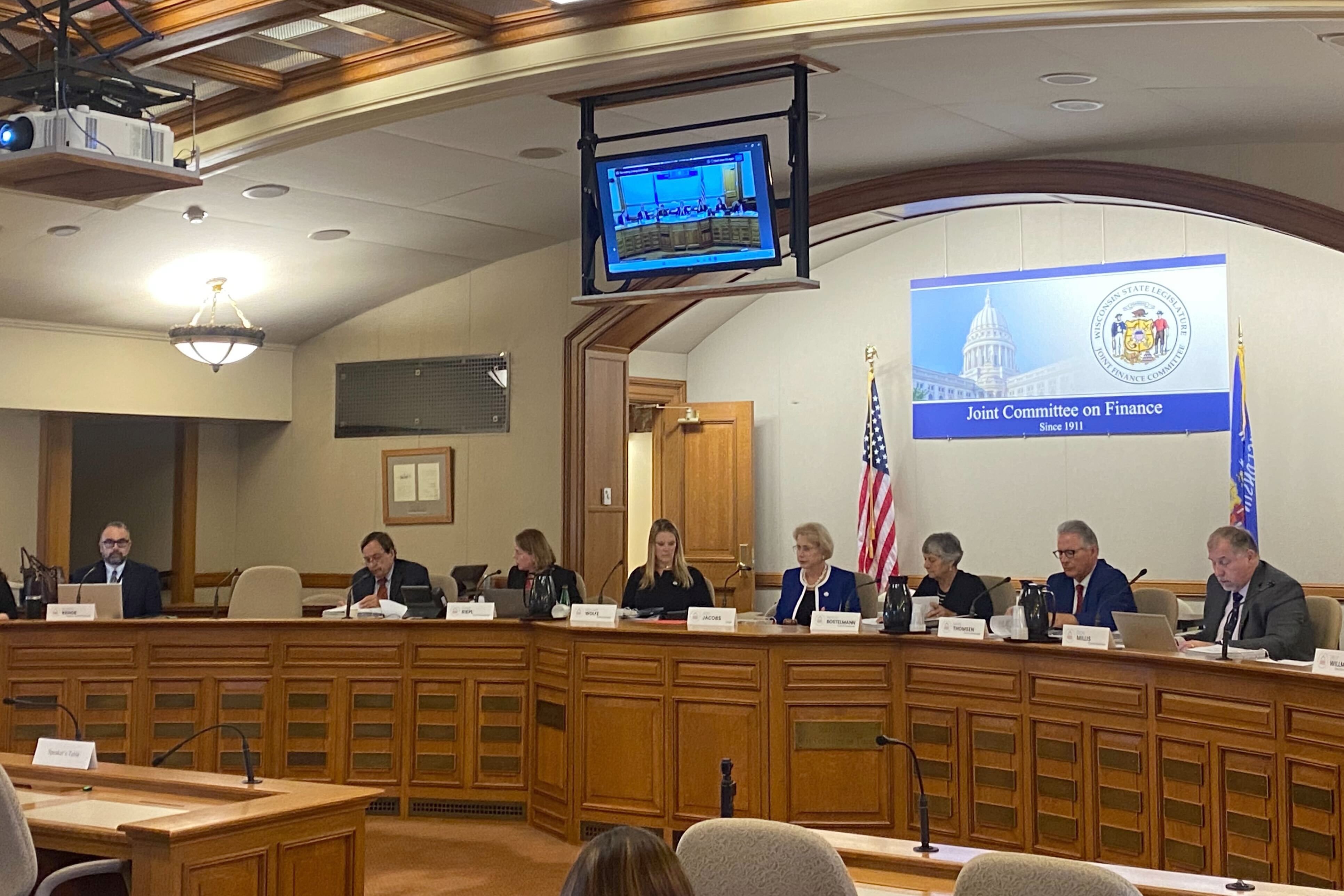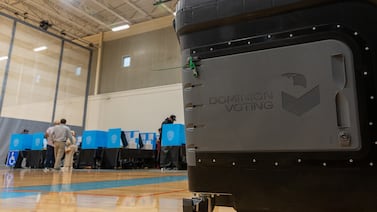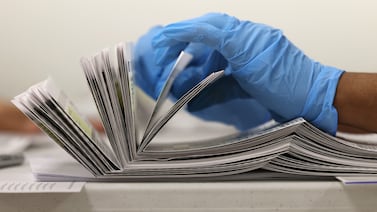Votebeat is a nonprofit news organization reporting on voting access and election administration across the U.S. Sign up for Votebeat Wisconsin’s free newsletter here.
The Wisconsin Elections Commission ordered Madison election officials to follow several specific election procedures to ensure that ballots don’t go missing again in the capital city, rejecting arguments by the interim clerk that the orders may exceed the agency’s legal authority.
The commission’s 5-1 vote Friday came a month after it withheld a first set of proposed orders amid pushback from Madison and Dane County officials, and asked the city to propose its own remedies. Madison interim Clerk Mike Haas said the specificity of the commission’s original proposed orders “would set a troubling precedent.”
The city did submit its proposals, but the commission rejected them as overly broad, and finalized orders that were largely similar to the ones it proposed in July, with some minor revisions, including citations of the legal basis for each order.
The orders require Madison officials to create an internal plan detailing which election task is assigned to which employee; print pollbooks no earlier than the Tuesday before each election; develop a detailed record to track absentee ballots; and search through election materials for missing ballots before the city’s election canvassing board meets to finalize results.
The WEC action responds to lapses by the Madison clerk’s office, then headed by Clerk Maribeth Witzel-Behl, after the November 2024 presidential election, when staffers lost track of 193 ballots and did not report finding them until well past the state deadline for counting. The commission launched its investigation into the matter in January.
Clerk’s cookie baking factored into commissioners’ discussion
During discussions ahead of the vote, Commissioner Don Millis, a Republican, cited Votebeat’s reporting that Witzel-Behl spent a long post-election vacation at home — not on an out-of-state trip, as he had believed — baking thousands of cookies, when some lost ballots were discovered. That, he said, factored into his vote for stricter orders.
“She couldn’t be bothered to turn off the oven, to come to the office to figure out if the Ward 65 ballots could be counted,” he said. “The failure to mention that the clerk was readily available to address this issue, along with the fact that none of the city officials we depose felt it was their job to get the ballots counted, makes me even more determined that the Commission must impose the directions in our order.”
Similarly, commission Chair Ann Jacobs, a Democrat, said it was “peculiar” that clerk’s office staff never told commissioners during their monthslong investigation that they rented cars on city time to deliver cookies after the ballot discovery.
Those deposed “were all part of the cookie crew,” she said ahead of her vote. “Why didn’t they tell us about that? Why didn’t the city of Madison ever mention this? Why did nobody bring this up?”
In a memo circulated ahead of the meeting, commission staff said the scope of the error “warrants a detailed order from the Commission correcting (Witzel-Behl’s) office’s policies and procedures, and ensuring those issues are actually fixed before the next statewide election.”
Haas, who was formerly the commission administrator, disagreed with the original proposed orders. He said the commission’s authority “does not extend to requiring the future implementation of specific procedures in excess of those required in the statutes.”
But commission staff pushed back, calling it “unreasonable and absurd” to read state law as barring the commission from ordering specific remedies.
In some cases, the commissioners made the requirements more stringent than what Madison proposed, but more lenient than the commission’s originally proposed orders.
For example, one order the commission initially proposed would have required Madison to print pollbooks no sooner than the Thursday before Election Day, despite state law calling on officials only to have the “most current official registration list.” Haas requested an order more in line with what state law outlines, printing the ballots as close to Election Day as possible.
The final order sets the deadline for printing pollbooks on the Tuesday before Election Day — two days earlier than first proposed — and requires that they be delivered no later than the Friday before the election.
Witzel-Behl’s office printed pollbooks for the two wards that lost ballots on Oct. 23, nearly two weeks before Election Day. The commission said printing that early made it harder for officials to track absentee ballots returned before Election Day, and harder for poll workers to see how many ballots went uncounted.
Interim clerk’s objections to the commission’s order
Haas, who took over as interim clerk after Witzel-Behl was suspended in March, told Votebeat on the Tuesday ahead of the meeting that it was “way too early” to think about whether Madison would appeal the commission’s orders in court. In a statement after Friday’s vote, he said he was grateful that the commission altered some orders after the city’s feedback.
“The question is which level of government is best suited and authorized to determine specific procedures that work for the municipality in going above and beyond what the statutes require,” he told Votebeat. “We look forward to working with the Commission to ensure compliance with state law.”
Mark Thomsen, a Democratic commissioner, said he wasn’t comfortable with the agency beating up on Madison over mistakes made under a former clerk when a new permanent clerk hasn’t yet been hired.
At the meeting, Thomsen said he was uncomfortable imposing burdens on a new clerk that “no one else has to follow.”
“This order seems spiteful, and I don’t want to go there,” he said, before casting the lone dissent. Republicans Millis, Bob Spindell, and Marge Bostelmann joined Democrats Carrie Riepl and Jacobs in approving the orders.
State law allows the commission to “require any election official to conform his or her conduct to the law, restrain an official from taking any action inconsistent with the law or require an official to correct any action or decision inconsistent with the law.”
Many of the orders, such as assigning specific staff to each election task, are not explicitly mentioned in statute.
Addressing claims that the orders were too detailed, commission staff attorney Angela O’Brien Sharpe said, “If the legislature intended for the commission to only be able to issue general orders, they would have written a law to say just that.”
In a statement following the vote, Madison Mayor Satya Rhodes-Conway said the city is reorganizing the office to improve efficiency and accountability.
“We appreciate the Wisconsin Elections Commission considering our input and amending its orders to reflect that feedback,” she said. “I hope the WEC’s investigation can help inform best practices for election clerks around the state.”
Alexander Shur is a reporter for Votebeat based in Wisconsin. Contact Alexander at ashur@votebeat.org.





